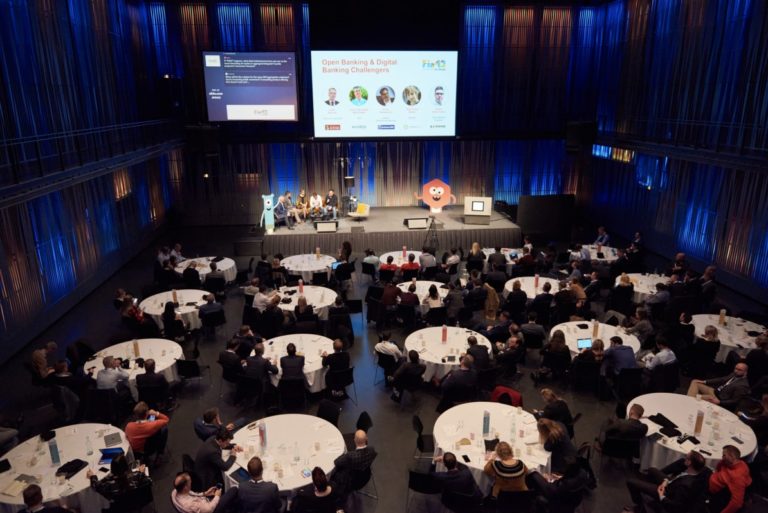Diversity in Fintech
The fintech industry has a gender diversity problem, with women representing only 29% of staff in the sector. Some of the main challenges can be listed as the pay gap, absence of women on boards & leadership positions and the lack of flexible working options. Fintech and other industry businesses require a diverse range of voices to shape and impact innovation.
Software providers in the industry aim to create improved digital experiences that influence users on a daily basis. When it comes to improving digital engagement, it is all about what your end goal is. Moreover, it is as much about quality as it is about the quantity of engagement. When you are building and delivering software solutions your end-customer is a diverse group of individuals. This means that the solution you are building needs to be designed, tested & implemented by groups with different levels of education, age, gender, nationality and background. If a solution is not designed to engage with diverse groups, it will likely fail.
Related Topics: Improving Diversity in Engineering – Ethical and Financial Investing – Inclusive & Sustainable Economy
Maintaining Key Values
The journey of a solution (in a high-level overview) starts with Design. It then progresses to Planning/Implementation/ Testing, reached Delivery/Pilot and concludes in End-user Commercial Launch. All stages are to be structured around a diverse UX/UI. Experience says that all the stages will look different for company #1 compared to company #2 and that is okay. The important thing is that you find a process that works for the team and -most importantly- for the users. Thus it is very important that all stages rely on the same values. From initial design to end-user launch. The final product needs to be designed with the belief that your prototype can always be improved. Conducting user testing and asking questions to our end users help us gain a better understanding of how we can create better products for them.

Perception of Diversity in Europe
My working experience in the Nordics had a major impact on my perception of gender diversity. Although no country in the world has yet achieved gender equality, Nordic countries stand out consistently in the annual Global Gender Gap Report, which measures how well countries are doing in closing the gap between genders.
The UK tells a different story. Nine years ago the UK was ranked as one of the world’s top countries for equality. However, in the 2018 report, the UK comes in at number 15. One reason for this is that women still face challenges with salary and promotions.
The Institute for Fiscal Studies (IFS) research shows the average difference in pay is 18% and widens markedly after women have children. This pressure will not help the country to address its workplace diversity issues.
Addressing the Need for Gender Diversity
There will be no silver bullet solution to this problem. However, by identifying some basic steps, we can start improving the numbers on gender diversity gaps. Topics of gender equality and the promotion of diversity in our sector cannot be ignored and surely are not a distraction. On the contrary, we must address them as the main objectives of our everyday performance.
Diversity is crucial in all forms. Most importantly, companies need to pursue employees with a diverse mix of voices, age, race, nationality along with working experience & background. In fintech, gender stereotypes are challenging, but this can be changed.
I am fortunate to work in an Icelandic Fintech company. Iceland is the most gender-equal country to date. For instance, it has closed over 85% of its overall gender gap. Iceland is followed by Norway (83.5%), Sweden and Finland (82.2%). We are in the business of helping banks revamp their customer relationships through white-label digital banking solutions. I am responsible for our Account Management department; our team focuses on customer relationships and engagement across 30 countries currently.

Diversity Policies in Meniga
As a team, we ensure that female leaders play a vital role in shaping our company’s policies and future strategy. Some policies we have introduced to make sure all staff are on even footing include:
- Employees can work from home to attend to their family matters. The company covers the cost of ‘’home-internet’’.
- Working hours & overtime are very flexible. We advise our team members to use their own judgement on working patterns and working hours. As long as one meets their commitment to their teammates and clients, working hours and arrangements are flexible.
- Our teams are also really eager to promote gender diversity in our communities. For instance, we arrange “meet-ups” in our offices with local Women’s Associations and university groups to advertise fintech as a good career path for young women. Aiming to set an example with women on our executive management team and on the Board of Directors.

Editor’s Picks – Related Articles:
Science Diplomats Bring a Gender Perspective to Science Diplomacy
What Needs to Change in Fintech
At fintech conferences and industry events, a very common question is “what about quotas’’? I think it is important to ask ourselves what we want to accomplish with diversity quotas in the first place. Instead of trying to manage outcomes by focusing on quotas, we should target root causes. Further, we must create the kind of hiring process that will, by virtue of being fair and inclusive, bring about the diversity outcomes we want.
How to Promote Diversity in the Workforce
- We must promote the fintech industry as a good career path for young women. Senior men and women should actively encourage them to engage in the fintech sector to avoid creating an even bigger gender talent gap in the future.
- Fintech companies need to introduce and adhere to policies like a mandatory paternal leave in combination with maternity leave, state-mandated parental leave benefits or a combination of social insurance funds and tax incentives.
- Implement flexible working life policies. In fact, many companies have introduced flexible working policies, either by choice and company culture or by necessity. Either way, we must consider these policies as “norm” in the company’s mentality and promoted as actual work-life balance initiatives.
- Diversity rations at events and conferences need to be equally measured. Team-leads and team members should simply count how many women and how many men are participating in events. This is a practical policy. This means that teams who are representing the company in industry events need to be a diverse segment of the company. Both women and men are participating as attendees, but also as keynote speakers or panellists. They need to make sure that diversity runs through the whole philosophy of the company, including marketing representation and branding.
Advice to Newcomers in the Fintech World
Be honest, be patient and be yourself. Gather experiences and remain open-minded. Seek role models & alliances both among women as well as among men. Further, learn to work as a team but also focus on your talents and passions and be vocal about them. Talent has no gender and both men and women build successful careers. Of course, there are still challenges in the industry. Nonetheless, I have a positive outlook. All it takes is companies putting policies into place to support their team members.
By accepting and promoting diversity in fintech, the field can rise beyond stereotypes. The industry will be vastly improved, remain open-minded and bring new, fresh ideas and perspectives.
The world today is undergoing its biggest transformation. Therefore, now is the time to “exit” the bubble and challenge the “normal”. Together we can define new “normal”, that is inclusive, productive and fun.
EDITOR’S NOTE: The opinions expressed here by Impakter.com columnists are their own, not those of Impakter.com.










